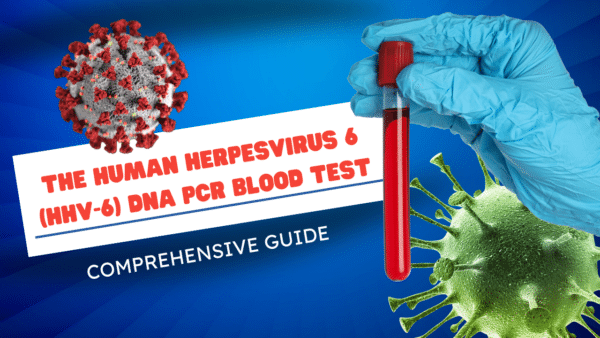Are you one of the many people who listed “Start Diet” on their new year’s resolution for 2020? If yes, you may want to check the below article before joining any fad diet bandwagon. It is always encouraged to do research before proceeding with any diet plan, especially if these are not medically approved by your physician. Here is a list of some of the known information about the most popular diets everyone is talking about:
The Atkins Diet
Atkins has always been one of the most famous diet plans. It involves reducing carbohydrates intake in order to leave your body to burn fat instead of the fuel provided by carbs. This diet has been criticized for placing no restrictions on quantities or on protein-rich and high-fat foods, although in recent years Atkins has included more guidance around portion control and healthy food choices. Atkins may have been successful for some, but some professionals claim that this diet can result in kidney problems. Eating too much protein puts added strain on your kidneys and this could worsen kidney function.
Ketogenic diet
This diet is all about achieving ketosis – a state where your body has no sugar fuel to burn so it burns fat instead. It is a high-fat, low-carb diet plan where your daily net carb intake should not be more than 50 grams. As a result, many people equate it to the Atkins diet. The key difference is that a ketogenic diet limits your daily protein intake to 15–25%, a restriction that the Atkins diet does not have.
Nonetheless, a lot of medical practitioners do not recommend this diet. Doctors say that high-fat diet plans like this may raise cholesterol levels, and some studies suggest that they increase the risk of diabetes. A 25,000-person study presented at the European Society of Cardiology Congress in Munich suggested that people on the lowest-carb diets had the highest risk of dying from cancer, cardiovascular conditions, and all other causes.
The Lemon Detox
The foundation of this diet is to replace all meals and drinks with water, lemon juice, cayenne pepper, and madal bal syrup – a blend of premium grade palm and maple saps. This concoction is to be taken every two hours so as to trick your body from starving. Those who followed this diet claimed that lemon detox not only helps weight loss but also cleanses your body of toxins. However, the lemon detox also has a significant number of critics who claim that many participants pile weight on after stopping as the diet slows your metabolism.
The Dukan diet
This was developed in 2000 by a French doctor, Pierre Dukan, but there is no evidence that it supports long-term weight loss. It claims that you can eat as much as you want and still lose weight so long as you stick to those on the Dukan diet list. The list comprises of 100 foods; 72 are from animal sources and 28 are plant-based. Unlike other diet plans, this diet has four phases:
- Attack Phase: Unlimited protein is allowed, along with 1.5 tablespoons of oat bran and 6 cups of water. This phase lasts 5 to 10 days and is supposed to yield 7 pounds of weight loss.
- Cruise Phase: This phase is between 5 days of eating only protein and 5 days of protein with non-starchy vegetables and 2 Tbsp oat bran until goal weight is achieved. Expected weight loss is a pound every 3 days during this phase.
- Consolidation Phase: Some fruits and grains are allowed, specifically one piece of low sugar fruit, two slices of whole-grain bread, 2 Tbsp oat bran, and one ounce of hard cheese every day. Dieters are also allowed one cheat meal a week, but they must go back and complete one day of the Attack Phase regulations once a week, as well.
- Stabilization Phase: This is a maintenance plan. It basically consists of regular eating with the inclusion of 3 tablespoons of oat bran every day, along with exercise.
While this diet has gained popularity across the globe, the British Dietetic Association named it the number-one diet to avoid. Rapid weight loss, combined with nutrient deficiencies, does the body more harm than good. It doesn’t meet basic human nutritional requirements, especially because it greatly cuts down on essential food groups like fruits and vegetables. The diet lacks vitamins A, B2, C and D, as well as folates, potassium, and fiber. Due to the unhealthy rate of weight loss, dieters also reported the loss of muscle mass.
The Zone Diet
The zone diet is another type of low-carb diet that has specific recommendations about the number of carbs and protein that you can eat in a day. The main goal is to put yourself “in the zone.” It encourages eating five smaller meals, instead of 3 regular meals a day, to help you feel fuller across the day. Their website also emphasizes that you need to “eat in the zone” and “balance your plate at every meal with one-third protein the size and thickness of your palm, two thirds colorful fruit and vegetable carbs, and a dash of fat”. Taking vitamins and supplements is also advised to increase your physical fitness with exercise. All these diet and lifestyle changes are designed to put your body in phase that reduces diet-induced inflammation-causing weight gain, sickness, and aging. Most of the claims of these diets are unfortunately unproven and its effectivity is yet to be verified.
That sums up the top 5 fad diets and their dangers. Remember, if a diet plan seems too good to be true, they probably are. Diets that promise quick and easy fixes to lose weight are devoid of essential nutrients and will wreak havoc on your health. Do not draw simple conclusions from complex medical research and always talk to your doctor if you want to lose weight. Your doctor can help you create a weight loss plan that is safe and effective.

